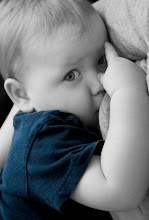
The world's largest food company began life in 1867, when Henri Nestlé developed the first milk food for infants - and "saved the life of a neighbour's child".
By Ian Johnston
Published: 8:45AM BST 27 Sep 2009
Nestlé has worldwide sales totalling £67 billion in 2008 Photo: EPA
He fed his formula to a premature baby boy whose mother was dangerously ill and unable to feed the child. The boy survived, sending sales soaring at a time of high infant mortality.
Since then the Geneva-based firm has grown into a corporate colossus with worldwide sales totalling £67 billion in 2008.
Nescafé coffee can be found in almost every country on the planet and the company owns scores of other household names.
In the UK, these include confectionary such as Kit Kat, Smarties, Yorkie and Aero along with Perrier water.
Elsewhere, Hot Pockets is the number one "frozen stuffed sandwich brand" in the US, Mucilon is the best-selling infant cereal in Brazil, Baeren Marke is a well-known dairy brand in Germany and Orion chocolate is "much loved" by Czechs and Slovaks.
Mövenpick ice cream is found in 35 countries, Pure Life bottled water is sold in 21 and Purina Dog Chow is the world's fourth largest dry dog food brand.
However the company is far from universally popular. In 2005, it was described as "one of the world's most boycotted companies" – along with Nike, Coca Cola and McDonald's – after an online poll of more than 15,000 people in 17 different countries.
The main reason for the boycott is the sale of the modern version of Henri's life-saving invention in the Third World. The campaign group Baby Milk Action claims that a bottle-fed child is up to 25 times more likely to die as a result of diarrhoea in areas with unsafe drinking water, while breast-fed children are less likely to suffer a range of illnesses.
The group is part of a worldwide movement, the International Baby Food Action Network which involves 200 citizens' groups in more than 100 countries, and which will hold its annual "Nestlé-Free Week" at the end of October.
In May, Nestlé said it believeds "breast feeding is the best way to feed a baby", but added: "When mothers cannot, or choose not to, breast feed, infant formula is the only product recognised by the World Health Organisation (WHO) as a suitable alternative. Nestlé universally follows all countries' implementation of the WHO code."

No comments:
Post a Comment